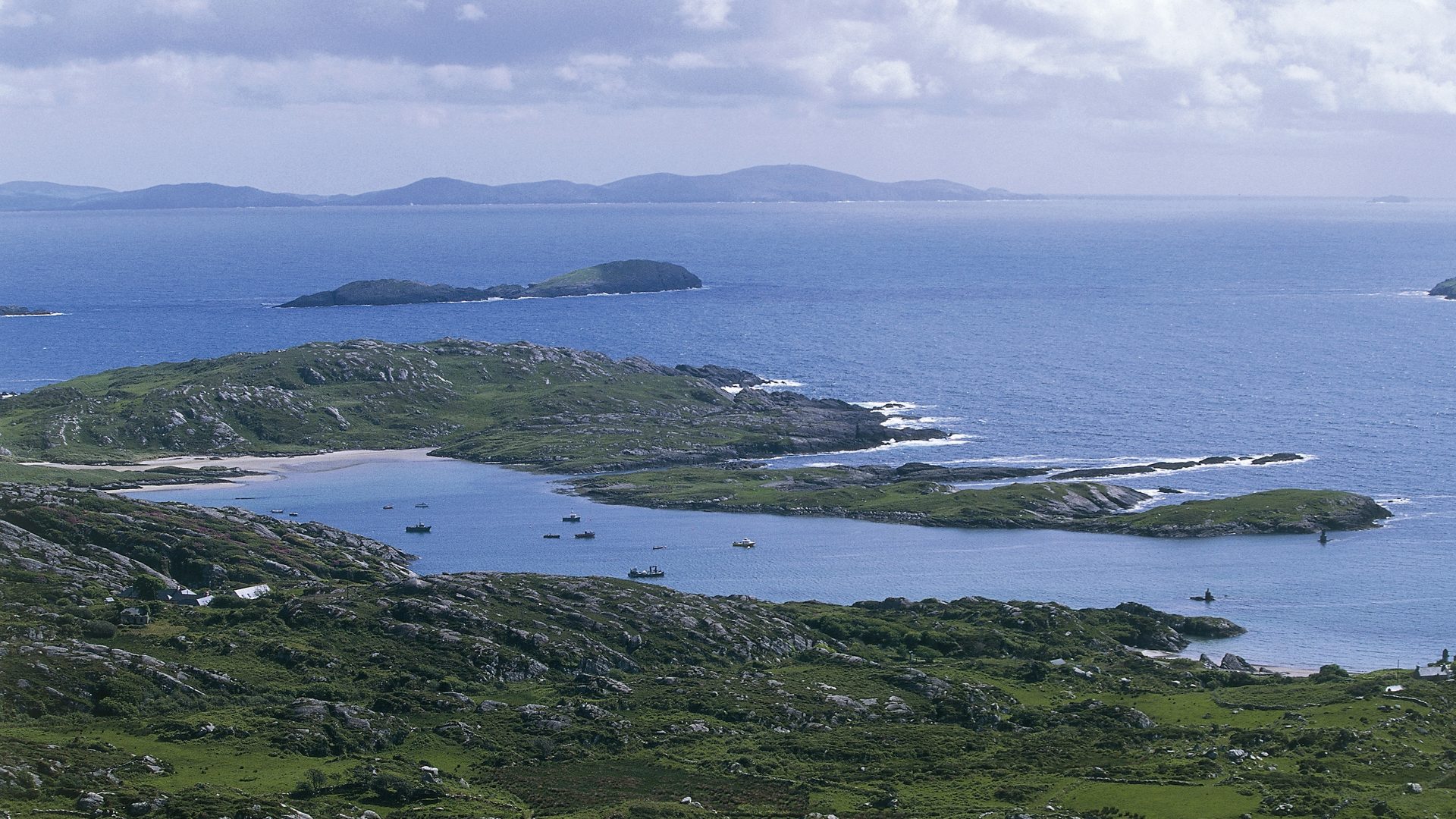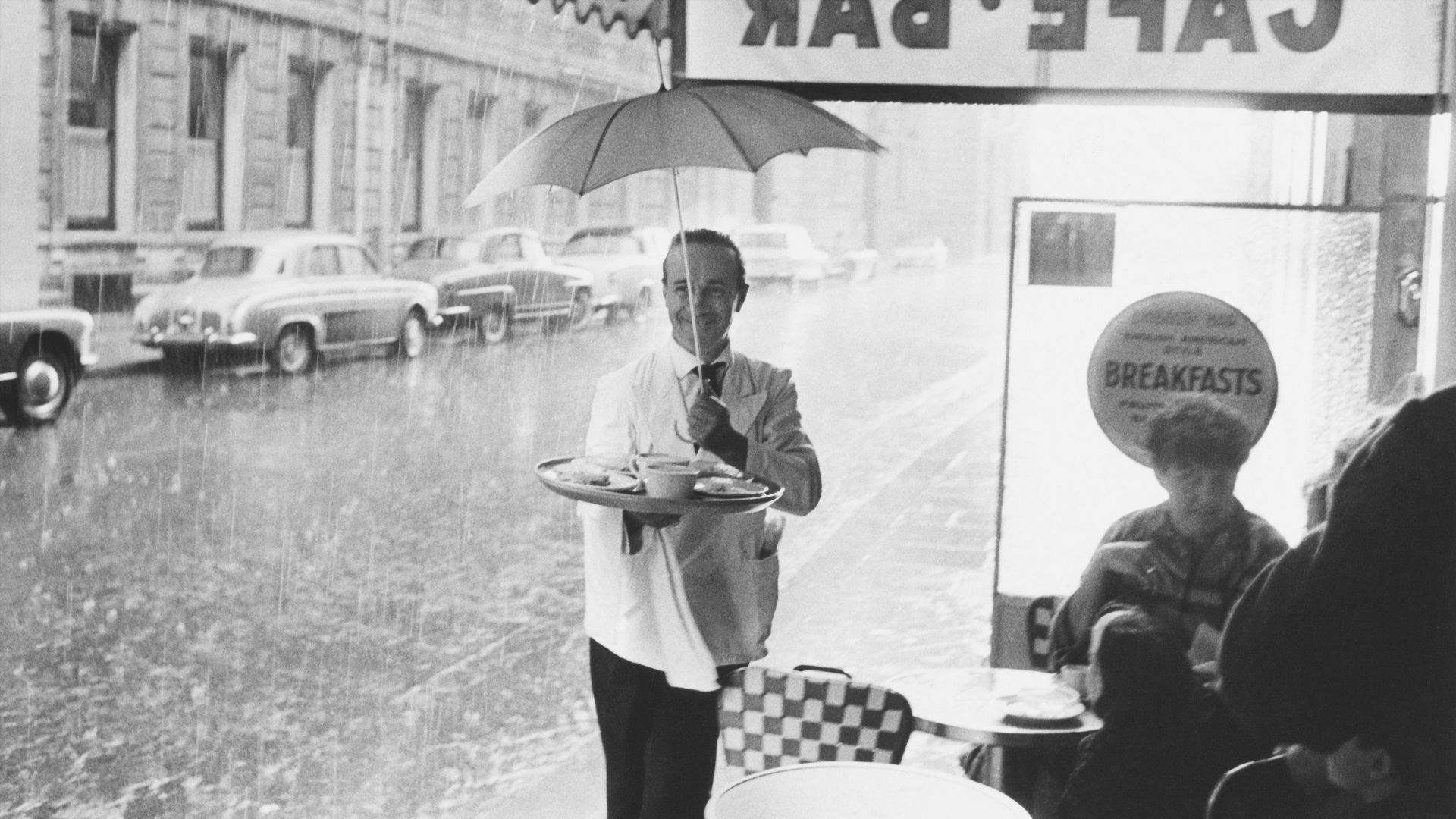On a soft day, with a splash of sunlight, the water of Derrynane Bay colours itself a true eau-de-nil. Seen through the ancient, glassless window of the ruined abbey on an adjacent hillside, it beams at you like a new friend.
From the correct angle, you can frame a view from the abbey of the deep, grey stone of Derrynane House on the far side of what is my favourite beach on the planet. The house, now a national monument, was the home of Daniel O’Connell, the Liberator, the 19th-century Kerryman who more than any other historical figure embodies Ireland’s discharge from the straps of England.
He is buried at Glasnevin in Dublin, along with the other heroes of Irish freedom, though none other has a 180ft tower to mark their say in it all. His wife, Mary, however, rests in a marble tomb within the roofless walls of Derrynane Abbey, open to the skies but snug in the corner of the ruin, facing that wind-whipped view and the verdant, sweeping hills behind her old home.
As it happens, in the opposite corner from Mrs O’Connell lie a stack – if that is the right word – of Fentons, buried here over a period of 150 years or more. I have never been able to work out if I am related to these lamented Fentons, though I do know that my great-great grandfather was born in Kerry.
Their memorial in the abbey graveyard points out that their name originally was O’Fiannachta, anglicised to Fenton when that was a prudent thing to do. In Irish, it means “fair as snow”. Maybe they were all blond, as I was once, before the grey crept up on me.
The memorial is not just to those under this turf, but also to other Fentons who moved off to, and died in, America. They are buried on the other side of the vast seas that slap the rocks just below the abbey, but remembered on its walls.
The Derrynane Fentons, it seems, like the unrecorded millions of Irish people past, had wandering in them. My own Fentons chose a less obvious route than straight across the Atlantic, traversing it diagonally from north-east to south-west, down to the far tip of the Americas on the Straits of Magellan.
Their journey, in the last quarter of the 19th century, has been on my mind this year. My daughter Sophie travelled to Argentina in the spring and I sent a message, more in hope than expectation, to my never-met and physically distant cousin Fentons who still farm sheep at the foot of the world, asking if she might visit.
It was as if I was asking if she could drop by for a cup of tea. They welcomed her like close kin instead of – we think – a fourth cousin twice removed, and spoiled her rotten. When she said she had never seen a glacier, they drove her 280 miles to see one.
This month, we were able to repay the debt, putting up Kevin Fenton, 22, handsome, bearded, Argentinian and following his genetic predisposition to wander. He and my daughter get on famously and act like close family though their common ancestor was born two years after the battle of Waterloo.
Is it in the genes, I wonder, standing in a wet blast in the ruins, a wind that may for all I know have come all the way from the Patagonian spring? The wandering, the kinship, the friendship?
In Irish, fine (pronounced “finn-ah”) is the word for a family group. Gelfine – “the family of the hand” defines the descendants of a grandparent; Sophie and Kevin are more like Larfine, or descendants from more-than-great grandparents.
But to the fair-as-snow folk lying silent in the corner of Mary O’Connell’s piece of Ireland, I am something different maybe: Mo Muintir (“Mo muyn-ta”) – a lovely idea and one that the inadequacy of English would render as “my people”. It carries conceptions of communality and of networks that are more like the mingling roots of a forest than obscure tangling of actual family trees. And of belonging and returning to those roots.
As the singer of the old song Trasna na dTonnta (Over the Water), a man returning to his Irish people from abroad, has it:
Muintir an Iarthair ’siad cairde mo chroí,
Fáilte ’is féile bheidh romham ar gach taobh.
Ar fhágaint an tsaoil seo, sé ghuidhim ar an Rí
Gur leosan a shinfear i gcill mé.
“People of the west, they’re the friends of my heart,
Welcome and celebration await me on every side.
Leaving this life, I pray to the Lord
That it’s with them I’ll be stretched in the graveyard!”
Ben Fenton is author of To Be Fair: The Ultimate Guide to Fairness in the 21st Century



